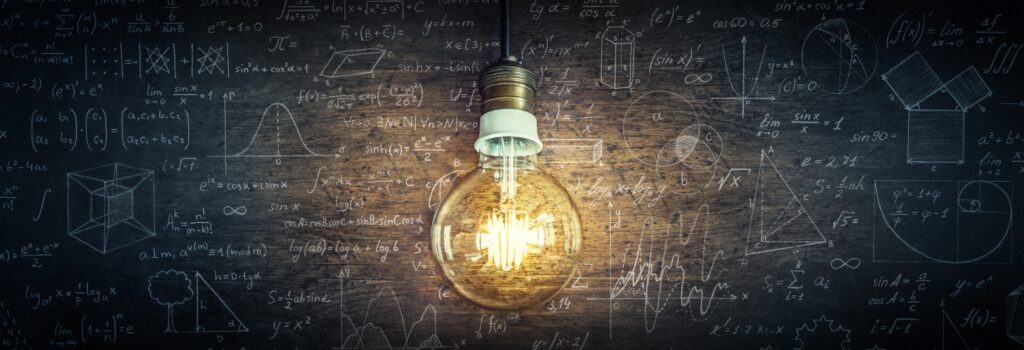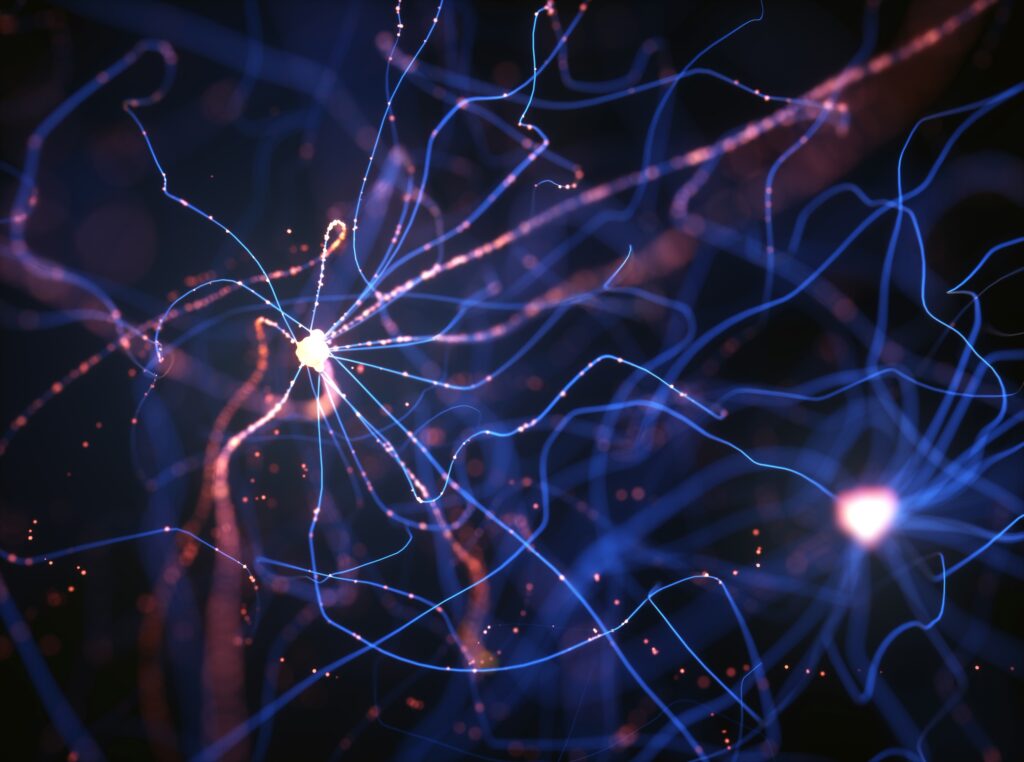Thoughts are more real than objects (The Return of Idealism)
Reading | Metaphysics
![]() Jeremy Dunham, PhD | 2024-04-20
Jeremy Dunham, PhD | 2024-04-20

Idealism is often regarded as a philosophy entailing that the world exists just in our heads, which is obviously false. Rising philosophical star Dr. Jeremy Dunham argues that this view of idealism is a misconception. Idealism is a much more realist worldview than we think, and more realist than its alternatives, as it does not deny the existence of the most real things there are: thoughts. This essay is the latest instalment of our The Return of Idealism series, produced in a collaboration with the Institute of Art and Ideas (IA). It was first published by the IAI on 19 April 2024.
What is idealism? Throughout history, in most cases, philosophical idealism is a metaphysical position. The idealist is concerned with reality’s fundamental nature. It is often mistakenly thought to be a reductive theory of the fundamental nature of reality. Many critics have supposed that the idealist tries to reduce reality to the subjective states of individual minds. According to this form of subjective idealism there is no world outside our minds. This view is often associated with the British empiricist Bishop Berkeley (1685-1753). Famously, when told that such idealism was irrefutable, the English author Samuel Johnson (1709-1784) shouted, “I refute it thus” and kicked a stone. The idealist therefore is thought to be the one who denies. They are anti-realist, anti-materialist, anti-naturalist, and certainly anti-stones.
This way of thinking about philosophical idealism is misleading. Many kinds of philosophers have both voluntarily and involuntarily been referred to as idealists. However, they are united by an understanding of idealism as a form of realism. Idealism is not a reductive philosophy. It argues for the real existence of elements of reality often dismissed. It is a realism about ideas. Even Berkeley frames his position as a realism. He wrote that “the real things are those things I see, and feel, and perceive by my senses.”
Berkeley opposed his view to those who regard our rich conscious phenomenal world, the world of tastes, feels, colours, and sounds, as in some way less real than the physical world. For Berkeley, the real stone is the coloured object which we see and feel and that resists us when kicked. If Johnson kicked the stone as hard as I imagine, he entered a world of pain. For Berkeley, this world is the real world. His idealism is ampliative, not reductive. Its aim is to account for the full extent of our reality. Berkeley, then, is not anti-stone. He argued that only idealism can do justice to stones.
Although idealism may refer to a doctrine that affirms the reality of our ideas in this subjective sense, there is another sense of the word ‘idea.’ This is the Platonic Idea, often referred to as ‘Form’ or ‘Universal.’ Idealism shares something in common with the modern philosophical view known as Platonism. But there are significant differences. Platonists defend the existence of universals in addition to particular properties. A Platonist about properties, for example, believes that in addition to the individual things in the world that have redness amongst their properties, such as the red pen in front of me and the red symbols on my computer screen, there is the universal redness. This universal isn’t in front of me. It doesn’t exist anywhere in space or time. It is an abstract object. An abstract object is neither physical nor mental. It is causally inert, fixed, and unchanging. Yet, when we see redness in the world, this redness is an exemplification or instantiation of that universal. Particular red things are united by the fact that they instantiate this universal. Accordingly, the modern Platonist seems to postulate two worlds. One of abstract objects and another in which they are instantiated. However, since the abstract objects are causally inert, the relationship between these worlds is mysterious.
One of the most important schools of idealism in its history is that known as absolute idealism. It originates with Hegel in Germany, but flourished towards the end of the nineteenth-century with many adherents in the Oxbridge philosophy departments and worldwide. Here, the idea in idealism explicitly refers to Plato’s ideas. However, the absolute idealist attempts to bring the two worlds described above together into one. Consequently, the abstract universal is made concrete.
In several places, Plato suggests that things have the properties they do in virtue of participating in the Idea (or universal). A beautiful thing is beautiful in virtue of the fact that it participates in the Idea of beauty. However, this suggests that the particulars stand in a causal relationship with the universals. Ideas are causally responsible for the existence of properties in the concrete world. Perhaps we are wrong to think of Plato’s Ideas as abstract objects after all? Abstract universals are causally inert, so whatever relationship there is between them and their instantiating particulars, it cannot be causal. This is the absolute idealist’s starting point. The universals do not exist outside of our world. They are immanent to it. They are not abstract, rather they are concrete. As Hegel claimed, since the living world is concrete not abstract, those who consider universals as abstract kill the living thing.
This kind of idealist argues that our world has the structure or form that it does because of the universals immanent to it. Hegel wrote that “The universal is the essential, true nature of things” and that “through thinking these over we become acquainted with the true nature of things.” Any individual bear, for Hegel, has a universal nature. It’s that aspect of its nature it shares with any other bear and thus enables us to identify it as a bear, even if we’ve never seen this individual bear before. But it is also different to every other bear. It has particular features that distinguish it from any other bear and make it an individual.
Crucially, in the case of the concrete universal, the particular features that make an individual the individual it is are not external to the universal but rather contained within it. You do not get the individual bear by bundling a bunch of extra particulars to the universal bear. Hegel dedicates much of his famous Phenomenology of Spirit to demonstrating that if you start with properties that are only externally related, it’s impossible to combine them together into the kind of unities that make up our world. A bear isn’t a bundle of qualities. It’s a self-preserving organism for which the parts depend on the whole as much as the whole depends on the parts. Its particular properties, like the thickness of its fur, are different in the winter than in the summer because they are internally related to the organism as a whole and sensitive to its survival needs.
What does it mean to say that the concrete universal contains particulars within itself? It means that the individual bear becomes the individual bear not by addition, but by negation. To think the abstract universal, you abstract away all the properties that differentiate one bear from another and the universal is whatever is left. The concrete universal, on the other hand, includes all those differences. The particularisation of the bear is the process by means of which it negates the properties that do not belong to it, leaving behind just those that make it the individual bear.
This is the meaning behind Hegel’s often quoted phrase: all determination is negation. ‘The true, infinite universal’, Hegel writes, ‘determines itself… it is creative power as self-referring absolute negativity. As such, it differentiates itself internally.’ This points to an important characteristic of the concrete universal: it determines the development of the individual. The universal guides the bear’s ideal development. It should develop from a cub to a yearling and then from a young adult to a mature adult. However, it develops in its own particular way. Although all bears develop from cub to yearling, only this individual cub developed in this particular way. The thought is that if you took away from the universal every particular way that the bear might develop, leaving us with the abstract universal consisting of just the features all bears share, you’re actually left with nothing. Certainly, you’re left with nothing living. You’ve murdered the living thing.
According to the most prominent contemporary metaphysical readings of Hegel, such as Robert Stern’s, the concrete universals should be understood as similar to Aristotelian substance kinds. This means that there are as many concrete universals as there are individuals to instantiate them. Emily is the individual human she is because she is a self-particularising concrete universal. However, the absolute idealists who dominated the British philosophical world towards the end of the nineteenth century believed that all these concrete universals were ultimately interrelated as parts of one all-encompassing concrete universal.
For the nineteenth-century British idealist Bernard Bosanquet, the perverse thing about abstract universals is that the wider their extension is, the less there is to them. This is because you get the universal giant panda when you abstract everything particular away from every individual giant panda. Then, to get the universal bear, you must abstract all the features that particularise it as one of its particular species of bear, like giant panda. To get the universal mammal you then abstract all the features that make each animal a mammal rather than a reptile, bird, or fish. The more things that supposedly instantiate a universal, the sparser the features of that universal are.
On the contrary, the logic of the concrete universal, Bosanquet says, does violence to the ‘inverse ratio of intention to extension.’ There is not less to the universal animal than there is to the universal bear, rather there is more because the universal animal contains bear within it and a whole host of other animals too. It’s the most substantial Noah’s ark you can imagine. However, if bears are part of a higher universal of mammals and mammals are part of a higher universal of animals, why stop there? Couldn’t there be a universal ‘living thing’? And perhaps one above that? For Bosanquet, this is exactly right. We keep going until we end up with just one concrete universal, the absolute Idea, the world as a whole. For Bosanquet this is ‘a system of members, such that every member, being ex hypothesi distinct, nevertheless contributes to the unity of the whole in virtue of the peculiarities which constitute its distinctness.’ In agreement with the Aristotelian reading of idealism, each individual is the self-particularising of the concrete universal, but, ultimately, it’s one and the same concrete universal self-particularising in various different ways.
The result of this is that we owe our individuality to a larger whole in which we are all systematically related and which relates us to each other in a fundamental way. Earlier I claimed that many people incorrectly regard idealism as a philosophy that is characterised by the things that it is against. However, here we find something that this kind of idealist really is anti: the idea of fundamental separateness. This has significant ethical implications. The most important absolute idealist of the twenty-first century, Timothy Sprigge (1932-2007), wrote that absolute idealism’s main message is that ‘we are nearer the core of things when we partly transcend it [our separateness] in cooperative ethical, cultural, and intellectual endeavours and in mutual aid.’
Idealism is a label that has been used to refer to a huge variety of different philosophical positions. I’ve focused on metaphysical versions to show how different idealism is from its common misconceptions. Idealism is not a reductive philosophy but an inflationary one. Idealism aims to do justice to the full extent of the characteristics of the world in which we live. Any thorough-going realism, any realism that takes every feature of our world seriously, must be a realism about the idea.
Many of the ideas in the article were developed in collaboration with Iain Hamilton Grant and Sean Watson when we wrote our 2011 Idealism book together. I’m also very grateful for many conversations with Robert Stern since then which have improved my understanding of the concrete universal. Thanks also to Joe Saunders and Emily Thomas for their comments on an earlier draft.

Essentia Foundation communicates, in an accessible but rigorous manner, the latest results in science and philosophy that point to the mental nature of reality. We are committed to strict, academic-level curation of the material we publish.
Recently published
Reading
Essays
Seeing
Videos
Let us build the future of our culture together
Essentia Foundation is a registered non-profit committed to making its content as accessible as possible. Therefore, we depend on contributions from people like you to continue to do our work. There are many ways to contribute.















